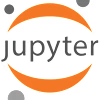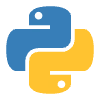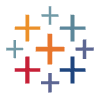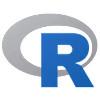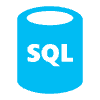Beyond Code: Soft Skills That Separate Great Data Science Freelancers

Beyond Code: Soft Skills That Separate Great Data Science Freelancers
Why Soft Skills Are Indispensable in Data Science Freelancing
Qualities Data Science Freelancers Need
1. Communication
2. Analytical Mindset
3. Emotional Intelligence
4. Adaptability
5. Persuasion
6. Organization
7. Creativity
Unique Value a Data Science Career Coach Offers
Mentorship for Technical Gaps
Advice for Career Strategy
Approaches for Better Soft Skills
Seek Interactive Workshops
Join Communities
Position Yourself as a Standout Freelancer
Build a Personalized Portfolio
Incorporate Clear Communication in Profiles
FAQs about Soft Skills for Data Science Freelancers
What are 3 of the key soft skills for data scientists?
Is data science a good career for freelancing?
What skill holds back most data scientists?
Does data science require coding skills?
Final Thoughts on Beyond Code
Beyond Code: Soft Skills That Separate Great Data Science Freelancers
Why Soft Skills Are Indispensable in Data Science Freelancing
“I’ve never had a client say, ‘Wow, I loved your feature engineering.’ What they remember is when the model helped them make a decision faster.”
Qualities Data Science Freelancers Need
1. Communication
“Your model has 92% accuracy” → “This predicts which users will churn next month, giving your team time to act.”
2. Analytical Mindset
3. Emotional Intelligence
“Let’s double-check we’re aligned—here’s what I’m planning to deliver by Friday based on our last conversation 👇”
4. Adaptability
5. Persuasion
“Fancy visuals don’t persuade people. Clear ones do.”
6. Organization
7. Creativity
Unique Value a Data Science Career Coach Offers
“It’s not always about what you know. It’s about what you’re missing and how you talk about what you do know.”
Mentorship for Technical Gaps
Advice for Career Strategy
Approaches for Better Soft Skills
Seek Interactive Workshops
“Explaining a regression model to a CFO in two minutes is a workshop exercise. Explaining it during a last-minute board meeting is not. Practice where the stakes are low.”
Join Communities
#freelance in the Locally Optimistic Slack#career and #freelancing threads“Someone else has already had your awkward client moment. They’re probably talking about it in a thread right now.”
Position Yourself as a Standout Freelancer
Build a Personalized Portfolio
“Client needed to reduce churn but had no labeled data. Built a heuristic-based segmentation model using product usage patterns. Churn rate dropped 12% in 3 months.”
“Initial dashboard was too complex for the client’s internal team. Reworked the layout after feedback and created a short walkthrough video. Team adoption increased.”
Incorporate Clear Communication in Profiles
“The freelancer sent a Slack message every Friday summarizing what was done, what’s next, and what’s needed from us. We never had to guess where things stood.”
FAQs about Soft Skills for Data Science Freelancers
What are 3 of the key soft skills for data scientists?
“Great freelancers don’t just explain the model—they explain why it matters, and when it doesn't.”
Is data science a good career for freelancing?
“If you’re okay with ambiguity and wearing multiple hats, it’s a solid path.”
What skill holds back most data scientists?
�“The model worked. The client didn’t use it. That’s not a tech failure—it’s a communication one.”
Does data science require coding skills?
Final Thoughts on Beyond Code
Posted Apr 20, 2025
Beyond Code: Soft Skills That Separate Great Data Science Freelancers—learn how communication, adaptability, and clarity drive repeat client work.

